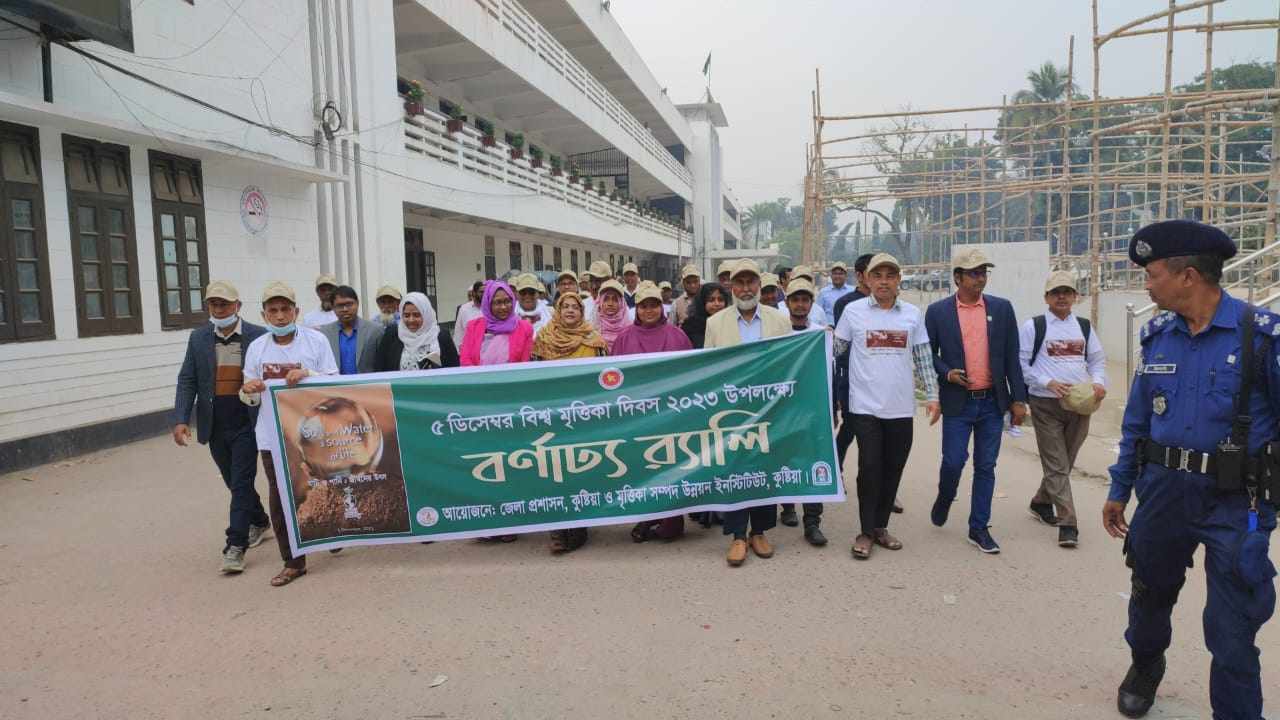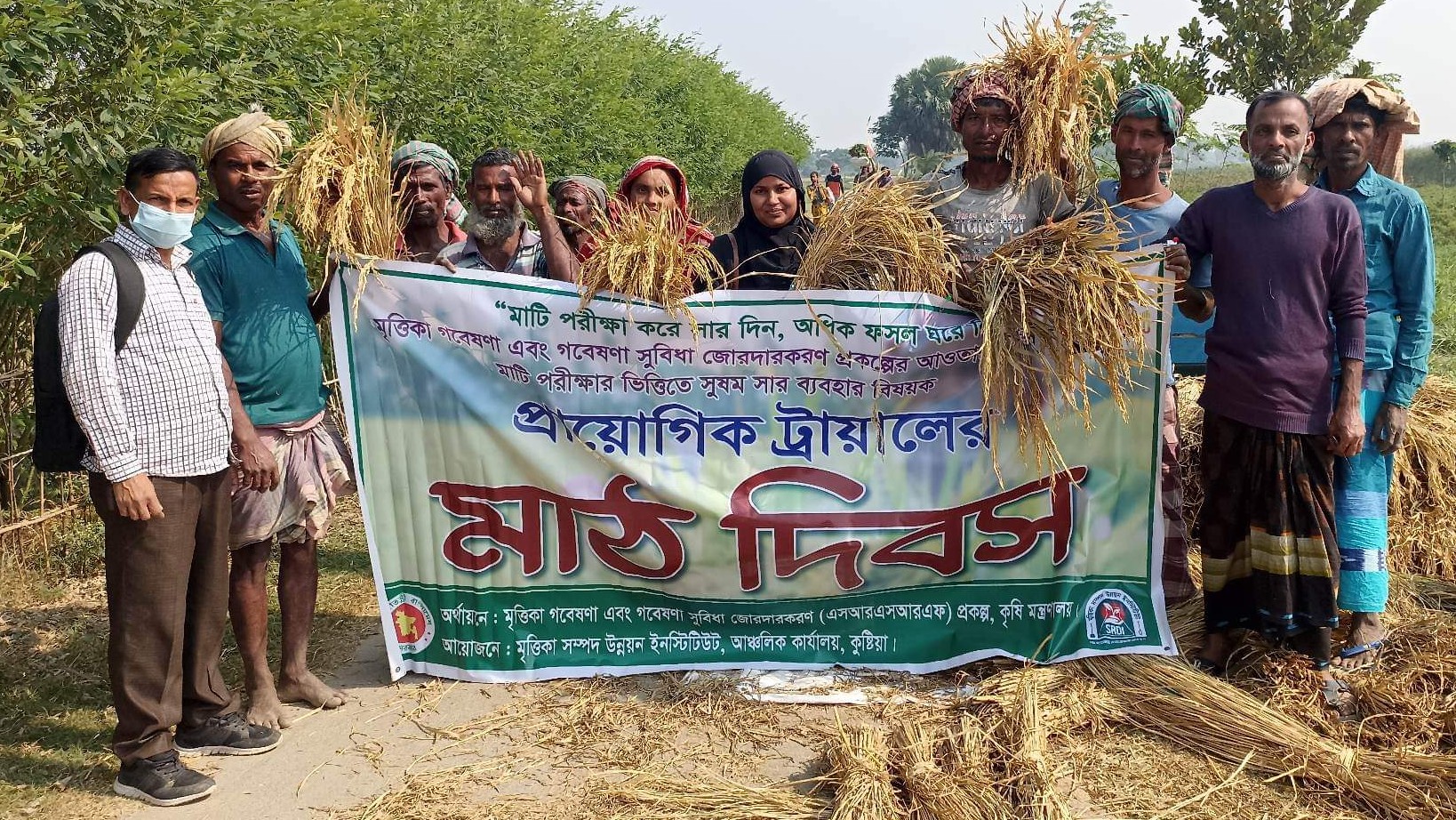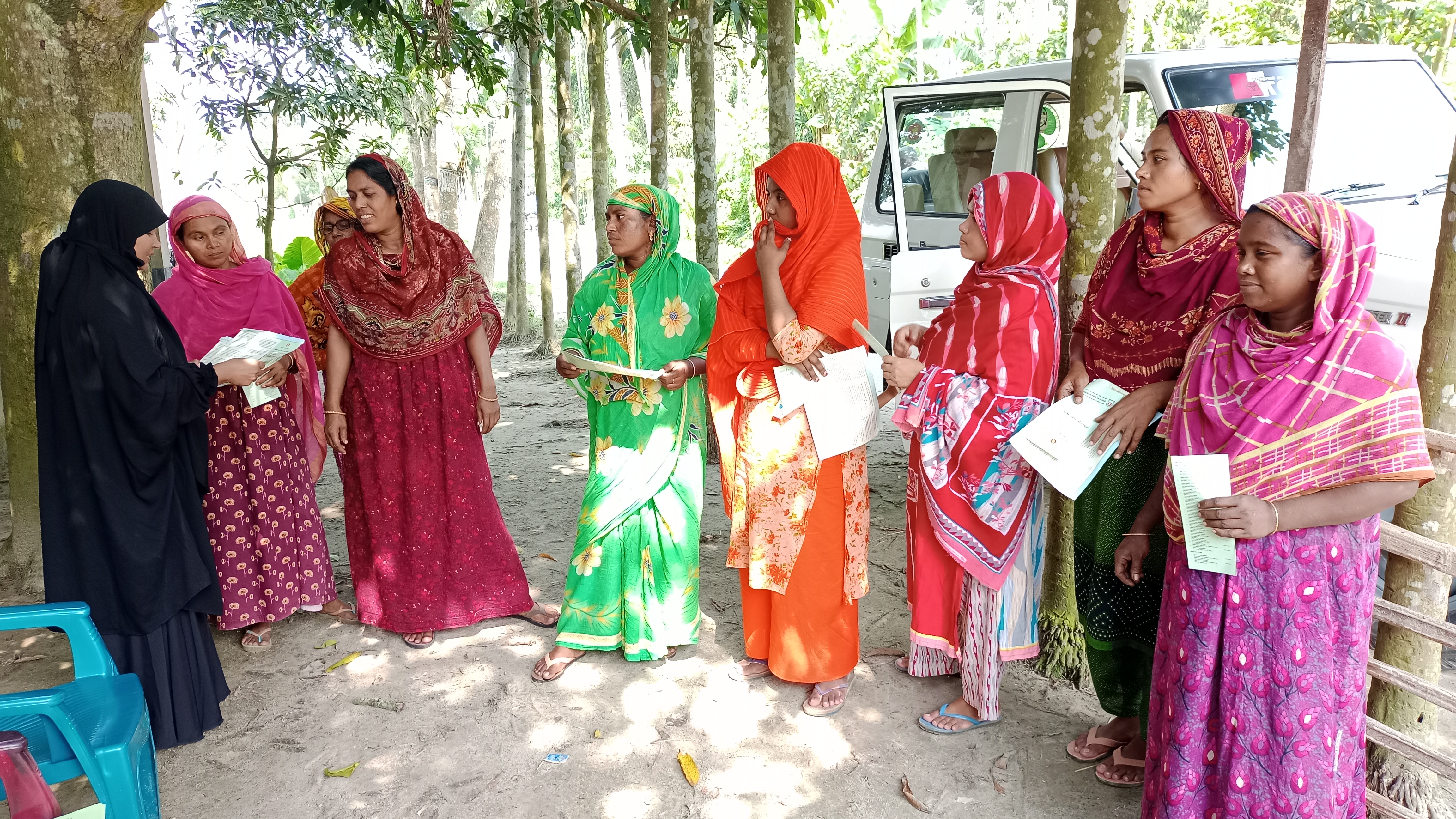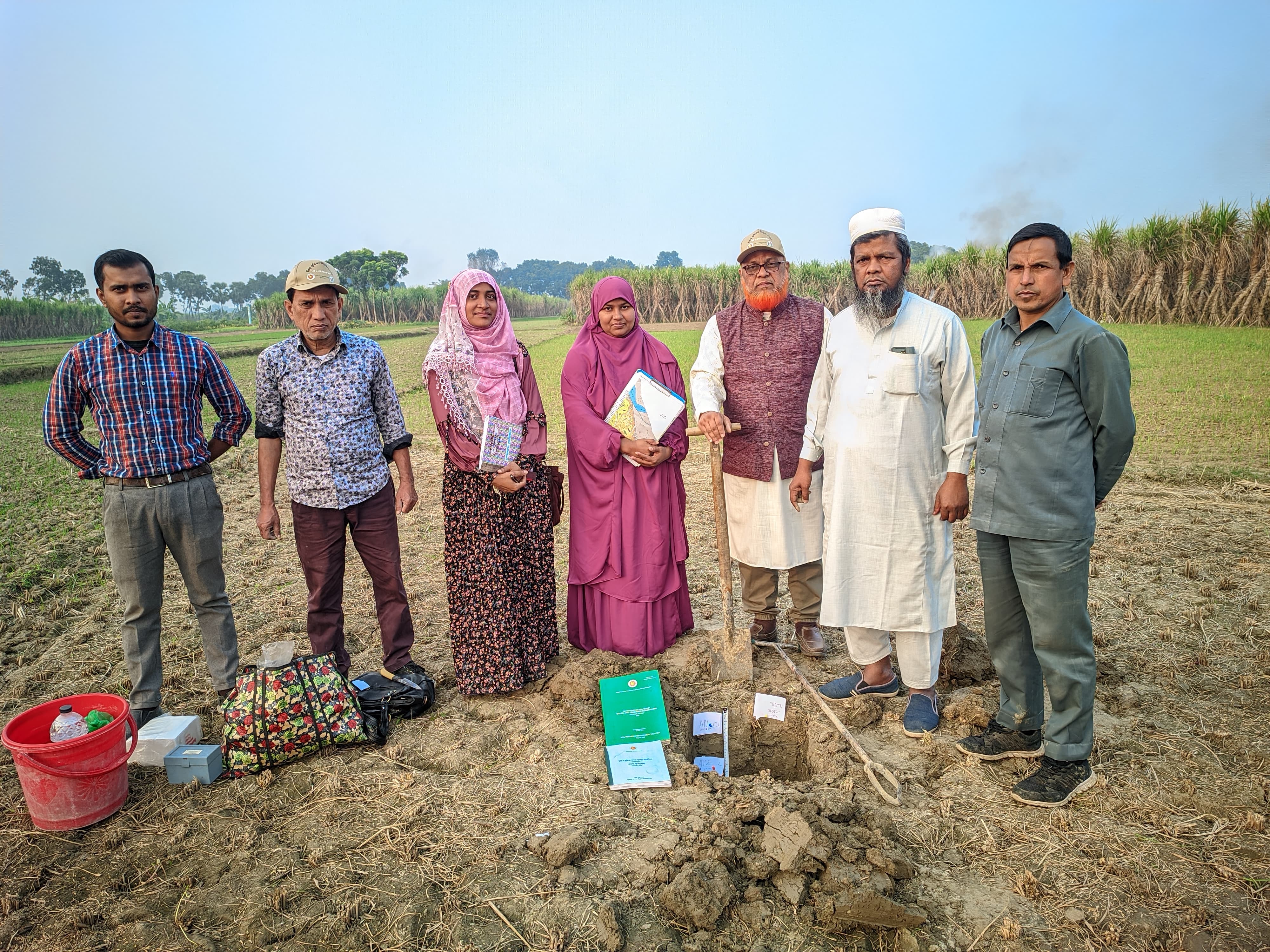মেনু নির্বাচন করুন
-
Home
- About Us
-
Our Services
Download
Training and Opinion
-
Other offices
Divisional/District Offices
Department/Division/Ministry
- e-Services
-
Gallery
Photo Gallery
Video Gallery
-
Contact
Official Contact
Contact map
-
Fertilizer Recommendation
Online Fertilizer Recommendation
Offline Fertilizer Recommendation
Main Comtent Skiped
At a Glance
Office introduction The Soil Survey Project of Pakistan was established in 1961 with the aim of maintaining and preserving the productive capacity of land, soil and water resources and to ensure the highest profitable use of these resources based on the actual assessment and development potential. Its purpose was to complete the Reconnaissance Soil Survey of the entire country for agricultural development. After the development of Bangladesh in 1972, the institution under the Ministry of Agriculture came to be known as 'Soil Survey Department'. In 1983, the Department of Soil Survey under the Ministry of Agriculture and Forests was restructured, expanded and renamed the Soil Resource Development Institute (SRDI).
The head office of the institute is located in Dhaka. The institute has 4 (four) departments, 11 (eleven) branches, 6 (six) regional offices, 21 (twenty one) district offices, 15 (fifteen) regional laboratories, 1 (one) central laboratory and 6 ( There are six) fertilizer quality determination laboratories, 10 (ten) mobile soil laboratories and 2 (two) research centers.
Soil Resource Development Institute (SRDI), Regional Office, Kushtia Office is a Government Institution under the control of Ministry of Agriculture which is managed under Khulna Regional Office. The institute belongs to NARS (National Agricultural Research System) as it is engaged in research on soil, water, crops and fertilizers. The activities of Kushtia regional office started from 1987. Kushtia, Chuadanga and Meherpur districts are included under Kushtia Regional Office. From the fertilizer laboratory of this office, it is possible to know the quality of suspected adulterated fertilizers in the region. The aim and objective of the Soil Resource Development Institute is to ensure rational and profitable use of the country's limited land and soil resources and to protect the soil environment. Notable functions include preparation of inventory of soil and land resources and capacity-based classification of land and soil resources. Preparation of user friendly guidelines, booklets and manuals to ensure optimal utilization of land and soil resources. Assist in the formulation and implementation of sustainable plans for managing problematic soils and increasing crop production.
Designation of Head of Department: Senior Scientific Officer, BCS (Agriculture)
Functions 1. Completion of soil survey based on the results of aerial image analysis, field survey and soil sample analysis in the laboratory for the purpose of creating a database of land and soil resources. Preparation and printing of various types of maps and reports based on the above survey. 2. Completion of detailed/semi-detailed soil survey of development project areas and research farms and preparation of reports as per the needs of various beneficiary organizations. 3. Conducting research activities and developing technologies for surveying and management of problematic soils (saline, alkaline, toxic, peat soils). 4. Providing online/offline fertilizer recommendation service. 5. Preparation of soil and water salinity survey/monitoring and report. 6. Correlation of soils identified through different surveys. 7. Providing soil, water, plant and fertilizer analysis services to farmers and other beneficiaries and providing fertilizer recommendations for crop cultivation based on the results of soil sample analysis. 8. Providing information delivery services on soil, land capacity and crop suitability to various beneficiary organizations for the purpose of formulating agricultural development plans. 9. Coordinating with beneficiary organizations at local, regional and national levels in formulating and implementing both short and long term agricultural development plans. 10. At district and upazila levels, agricultural extension, research and training of NGO workers on the use of land and soil resources in the respective areas. 11. Providing training to the farmers on proper management of soil and water in crop production, application of balanced fertilizers, detection of adulterated fertilizers and developed technologies.
Site was last updated:
2025-09-24 11:24:16
Planning and Implementation: Cabinet Division, A2I, BCC, DoICT and BASIS














